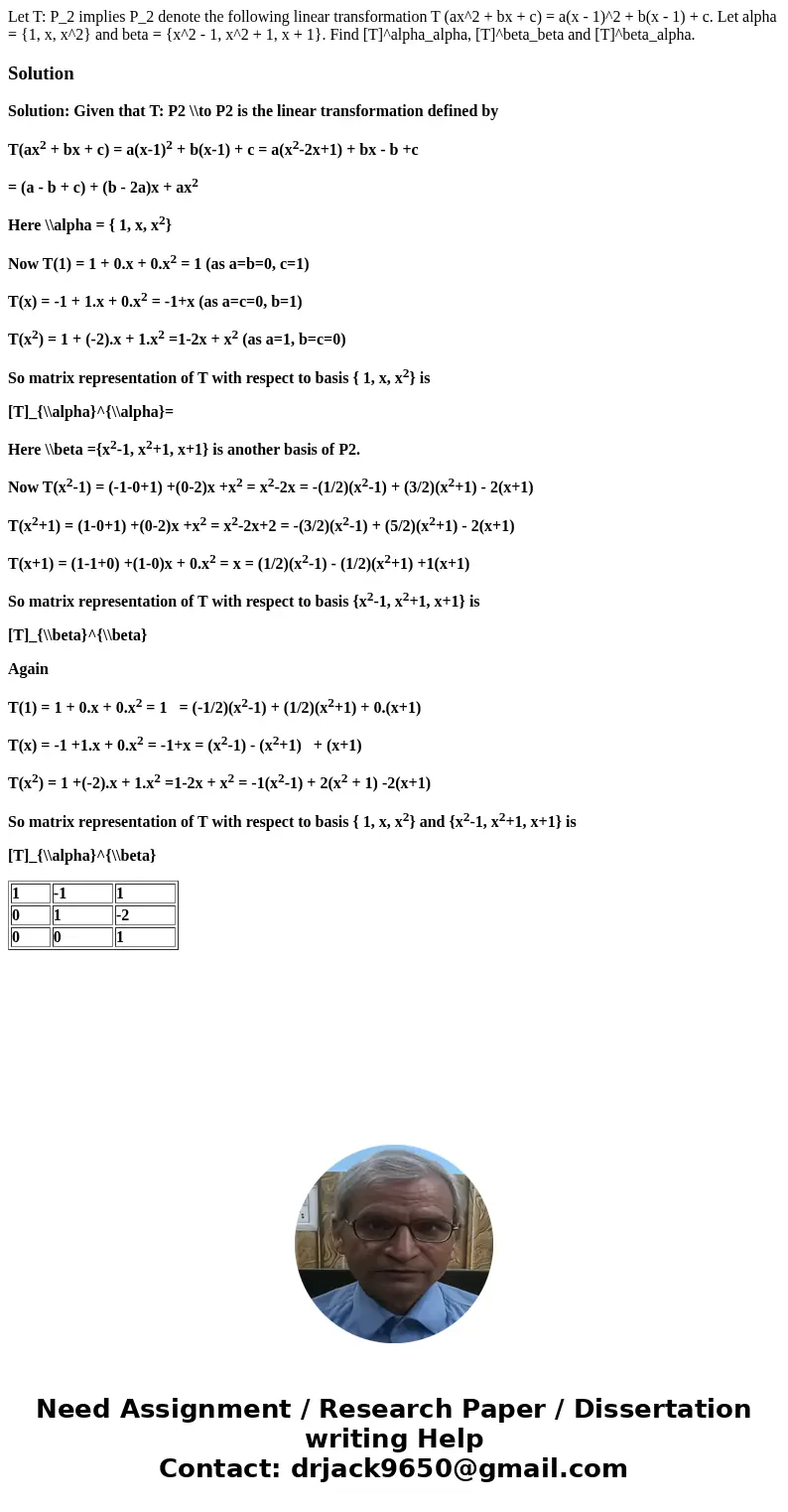Let T P2 implies P2 denote the following linear transformati
Solution
Solution: Given that T: P2 \\to P2 is the linear transformation defined by
T(ax2 + bx + c) = a(x-1)2 + b(x-1) + c = a(x2-2x+1) + bx - b +c
= (a - b + c) + (b - 2a)x + ax2
Here \\alpha = { 1, x, x2}
Now T(1) = 1 + 0.x + 0.x2 = 1 (as a=b=0, c=1)
T(x) = -1 + 1.x + 0.x2 = -1+x (as a=c=0, b=1)
T(x2) = 1 + (-2).x + 1.x2 =1-2x + x2 (as a=1, b=c=0)
So matrix representation of T with respect to basis { 1, x, x2} is
[T]_{\\alpha}^{\\alpha}=
Here \\beta ={x2-1, x2+1, x+1} is another basis of P2.
Now T(x2-1) = (-1-0+1) +(0-2)x +x2 = x2-2x = -(1/2)(x2-1) + (3/2)(x2+1) - 2(x+1)
T(x2+1) = (1-0+1) +(0-2)x +x2 = x2-2x+2 = -(3/2)(x2-1) + (5/2)(x2+1) - 2(x+1)
T(x+1) = (1-1+0) +(1-0)x + 0.x2 = x = (1/2)(x2-1) - (1/2)(x2+1) +1(x+1)
So matrix representation of T with respect to basis {x2-1, x2+1, x+1} is
[T]_{\\beta}^{\\beta}
Again
T(1) = 1 + 0.x + 0.x2 = 1 = (-1/2)(x2-1) + (1/2)(x2+1) + 0.(x+1)
T(x) = -1 +1.x + 0.x2 = -1+x = (x2-1) - (x2+1) + (x+1)
T(x2) = 1 +(-2).x + 1.x2 =1-2x + x2 = -1(x2-1) + 2(x2 + 1) -2(x+1)
So matrix representation of T with respect to basis { 1, x, x2} and {x2-1, x2+1, x+1} is
[T]_{\\alpha}^{\\beta}
| 1 | -1 | 1 |
| 0 | 1 | -2 |
| 0 | 0 | 1 |

 Homework Sourse
Homework Sourse